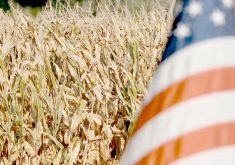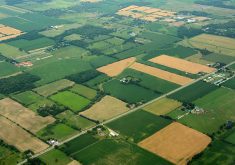The merits of testing all cattle for BSE will be studied next year.
PrioNet Canada is inviting proposals for a cost-benefit and risk analysis of testing all beef to gain access to more markets worldwide. The Canadian industry has debated the issue since the first case of BSE was found in Canada in 2003, and markets closed.
“The issue of universal testing for the market has been an issue of concern for awhile,” said Kevin Keough of PrioNet Canada, which funds research into transmissible spongi-form encephalopathies such as BSE, chronic wasting disease and Creutzfeldt–Jakob disease.
Read Also

Russian wheat exports start to pick up the pace
Russia has had a slow start for its 2025-26 wheat export program, but the pace is starting to pick up and that is a bearish factor for prices.
The Alberta Livestock and Meat Agency and Alberta PrioNet are also funding the proposed research.
The successful proposal should be awarded by the end of the year. A report is expected about six months after that.
Keough said the debate needs scientific evidence, which could be used in negotiations to reopen closed markets or further open those that are now partially open.
“It is important to know the impact of meeting that requirement to open those markets,” Keough said.
He said the study should generate wide interest among exporters, beef producers, regulatory agencies and government. It may not settle the debate, but the scientific evidence will be there, he added.
Rancher David Pope of High River, Alta., said a study may not be needed. The Canadian government needs to officially ask the Japanese government if it would accept product if all cattle were tested for BSE, he added.
“There is a tremendous opportunity there and our federal government refuses to go there,” said Pope, who is the Western Stock Growers Association’s representative to the Canada Beef Export Federation.
“I call it the billion dollar question.”
Canadian exports to Japan are limited because beef must come from cattle younger than 20 months. A Japanese meat buyer told the Canada Beef Export Federation meeting in 2008 there is potential to ship 350,000 tonnes of beef from tested cattle. That market could be worth $1 billion.
Pope said if the Japanese accepted Canadian beef that had been tested for BSE, it could open doors to South Korea and China, two markets Canada has been unable to penetrate.
It could also open the door to beef from older cattle that are selling for less than $350 each as culls.
“Our industry is being destroyed day by day. We have to have a market outside the United States,” he said.
As of last month, Canada had tested 27,000 samples with one positive case. Last year it tested 48,000 and found four positives.















